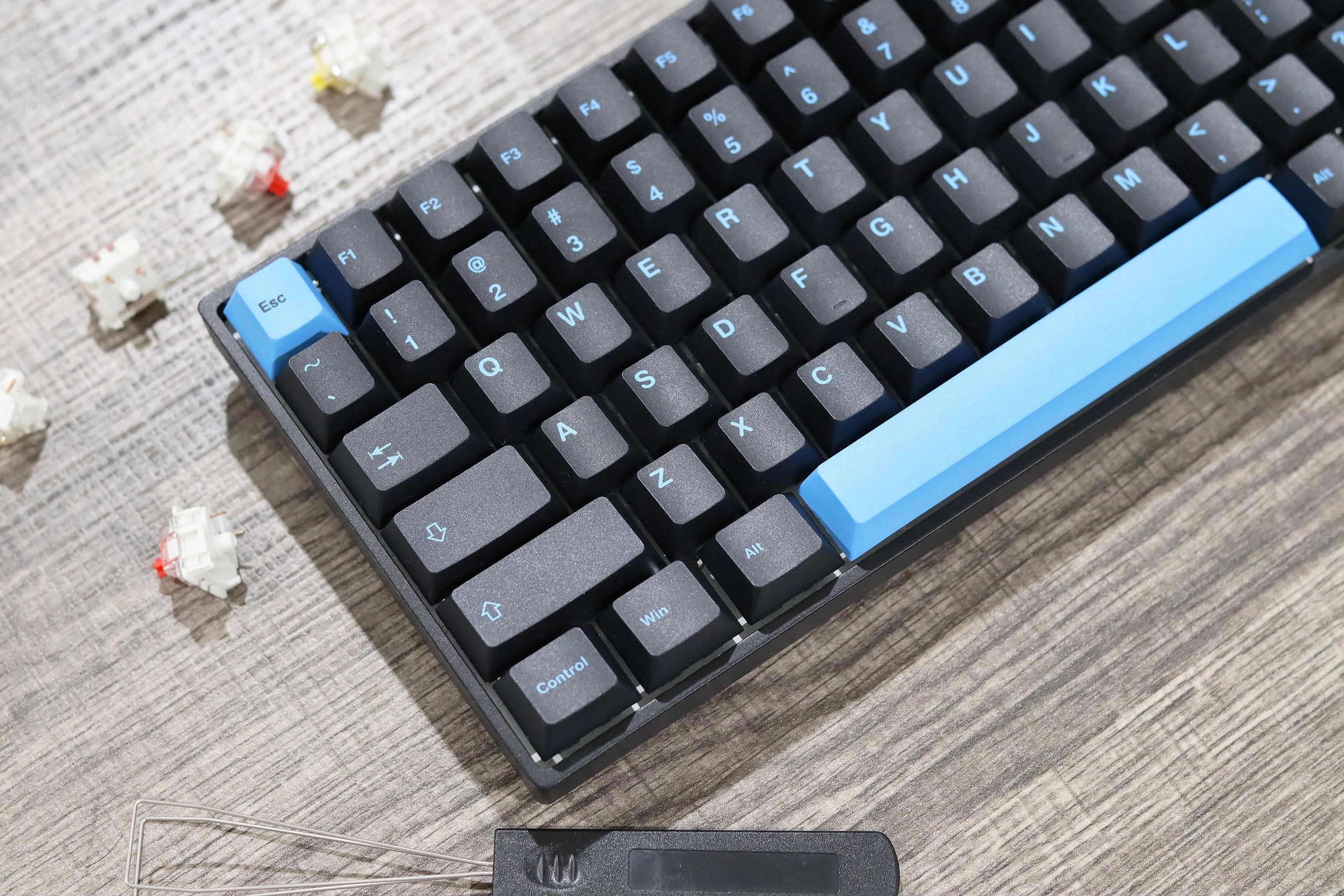Mechanical vs. Normal Keyboards
In the world of keyboards, there exists a notable dichotomy between two distinct types: mechanical keyboards and normal (membrane) keyboards. The choice between these two isn't just about aesthetics; it significantly impacts the typing experience, durability, and customization options. Let's delve into the differences that set mechanical and normal keyboards apart.
-
Key Switches: The Heart of the Matter
Mechanical Keyboards: Mechanical keyboards employ individual mechanical switches for each key. These switches are known for their tactile feedback, audible click, and varied actuation forces. Users can choose from different switch types based on personal preferences, ranging from linear to tactile and clicky switches.
Normal (Membrane) Keyboards: Membrane keyboards, on the other hand, rely on a membrane layer beneath the keys. When a key is pressed, a rubber dome beneath it pushes against the membrane, completing the circuit. This method lacks the distinct tactile feel and audible feedback of mechanical switches.
-
Durability: The Longevity Test
Mechanical Keyboards: Mechanical switches are renowned for their durability. They can withstand a significantly higher number of keypresses, making mechanical keyboards a preferred choice for users who demand a reliable and long-lasting typing tool.
Normal (Membrane) Keyboards: Membrane keyboards, while functional, may have a shorter lifespan and are more susceptible to wear and tear. This makes them suitable for less demanding usage scenarios.
-
Typing Experience: Where the Rubber Meets the Road
Mechanical Keyboards: The tactile feedback and audible click of mechanical keyboards provide a more satisfying typing experience. This feature is especially valued by typists, writers, and gamers who seek precision and responsiveness.
Normal (Membrane) Keyboards: Membrane keyboards offer a softer, quieter typing experience. Some users find this more comfortable for extended periods of use, particularly in shared or quiet environments.
-
Customization: Tailoring the Experience
Mechanical Keyboards: Mechanical keyboards often provide a higher degree of customization. Users can swap out keycaps, adjust actuation points, and choose switches based on their specific preferences. This flexibility caters to a diverse audience seeking a personalized typing experience.
Normal (Membrane) Keyboards: Membrane keyboards typically offer fewer customization options. While they serve their purpose, they may not appeal to users who crave a more tailored and individualized keyboard setup.
-
Price: Budget vs. Luxury
Mechanical Keyboards: The quality and individuality of mechanical switches contribute to a higher price point for mechanical keyboards. They are an investment for those who prioritize a premium typing experience.
Normal (Membrane) Keyboards: Membrane keyboards are often more budget-friendly, making them accessible to a broader audience. They provide a functional solution without the premium cost associated with mechanical keyboards.
Choosing between a mechanical and a normal keyboard is a decision that hinges on personal preferences, typing habits, and the intended use of the keyboard. Whether you opt for the tactile precision of mechanical switches or the softer feel of membrane keys, the keyboard you choose becomes an extension of your digital interaction, influencing your productivity and enjoyment. The keyboard divide offers options for everyone, catering to diverse tastes in the ever-evolving landscape of technology.






